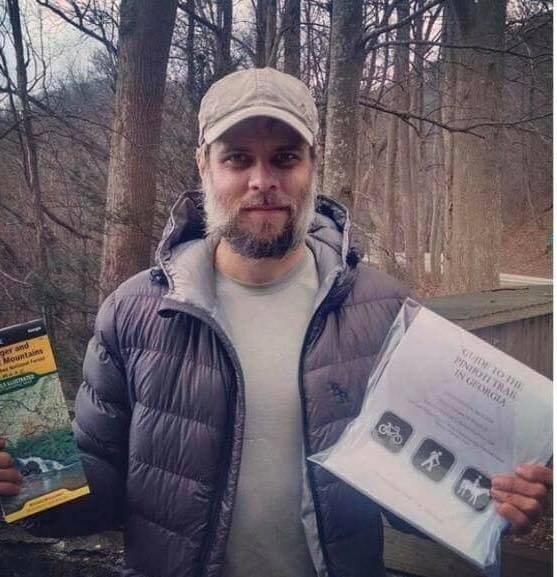DNA Sequencing Could Help ID Hiker Found Dead in 2018
Authorities and amateur sleuths are hoping cutting-edge DNA sequencing technology will soon provide a breakthrough in the mysterious case of Mostly Harmless, a backpacker who was found dead in his tent on the Florida Trail in July 2018 and remains unidentified to this day. The John Doe initially went by the trail name Denim when he started hiking south on the AT from Harriman State Park in New York 15 months earlier. He later went by the name Mostly Harmless. Further investigation revealed that the man also used the alias Ben Bilemy at hiker hostels.
Hikers found the man dead in his tent in the Big Cypress National Preserve on the Florida Trail on 23 July 2018. Police were summoned swiftly, but the campsite held few clues. He carried no cell phone, credit card, or identification. Other than backpacking gear, he had only some handwritten notes about video game development and $3,600 cash on his person.
Image from the Collier County Sheriff’s Office.
Authorities subsequently pieced together a few details about the mysterious hiker: the aliases, a rough itinerary and timeline of his hike from the AT in New York to the Florida Trail, a number of photographs provided by people who had known him on the trail, and the fact that he had told hikers and trail community members who spent time with him that he had worked in the tech industry.
But from there, the trail largely went cold.
Investigators were unable to determine the cause of death. There was no evidence of foul play. An autopsy revealed no sign of injury and no substances other than ibuprofen and an antihistamine detected in his system. Also, his DNA turned up no matches in the missing persons database. No one, other than a handful of hikers, trail angels, and hostel/outfitter staff, seemed to recognize him.
Image from the Collier County Sheriff’s Office.
Amateur sleuths took up the case, but in spite of their crowdsourced efforts, the investigation continued to stall. Then, in 2020, a private Texas-based DNA laboratory called Othram offered to breathe new life into the cold case.
The Collier County Sheriff’s Office, the Florida agency in charge of the investigation, announced in July that “now, as the two-year anniversary of the case approaches, detectives have partnered with a private DNA laboratory in Texas to identify the man using a new technique in forensic genealogy and handles the process in-house. The partnership comes after detectives determined that they had exhausted DNA searches through national missing person’s databases…”

Image from the Collier County Sheriff’s Office.
Othram uses DNA sequencing to flesh out a person’s entire genome in exacting detail. Genome sequencing can provide clues about a person’s relatives and ancestry that can help authorities narrow their search.
Wired reports that Othram successfully completed the genome sequencing in August of this year, and that “while Othram doesn’t know Mostly Harmless’ name, it has found enough matching patterns to identify the region of the country from which his ancestors hail.” According to Wired, Othram might know more about Mostly Harmless’s identity as soon as this December.
Image from the Collier County Sheriff’s Office.
Contact CCSO with Tips
In the meantime, anyone who may have information about Mostly Harmless should call the Collier County Sheriff’s Office at 239-252-9300.
Featured image from the Collier County Sheriff’s Office.
This website contains affiliate links, which means The Trek may receive a percentage of any product or service you purchase using the links in the articles or advertisements. The buyer pays the same price as they would otherwise, and your purchase helps to support The Trek's ongoing goal to serve you quality backpacking advice and information. Thanks for your support!
To learn more, please visit the About This Site page.


